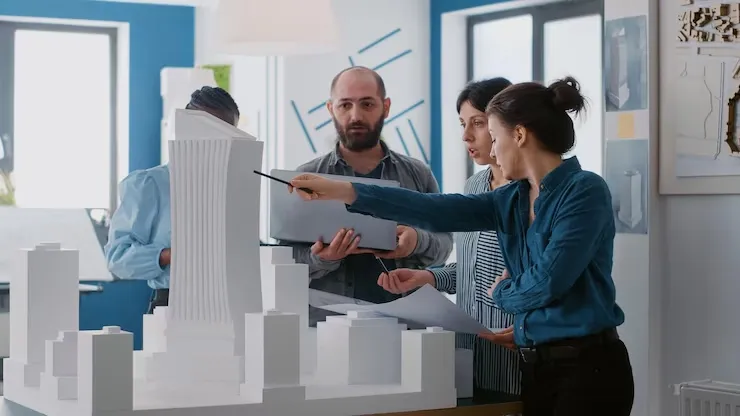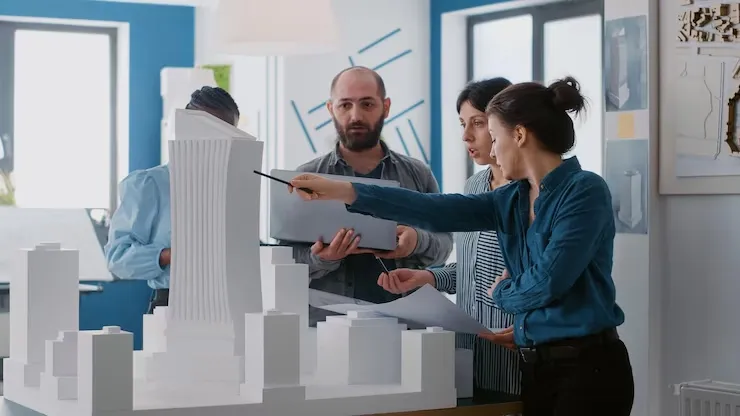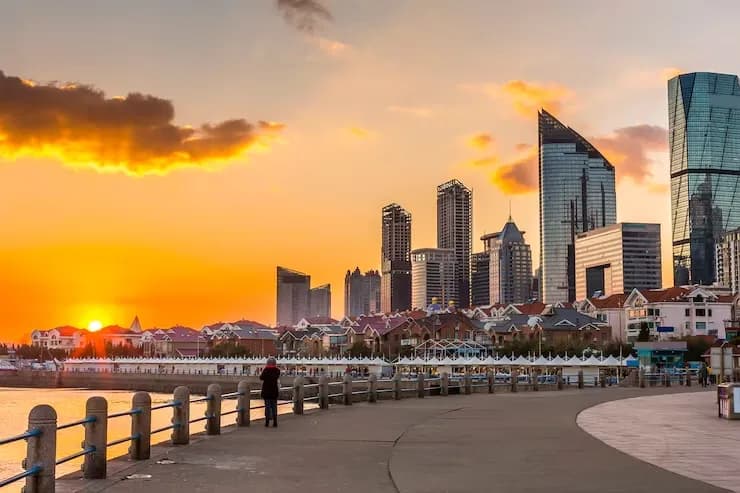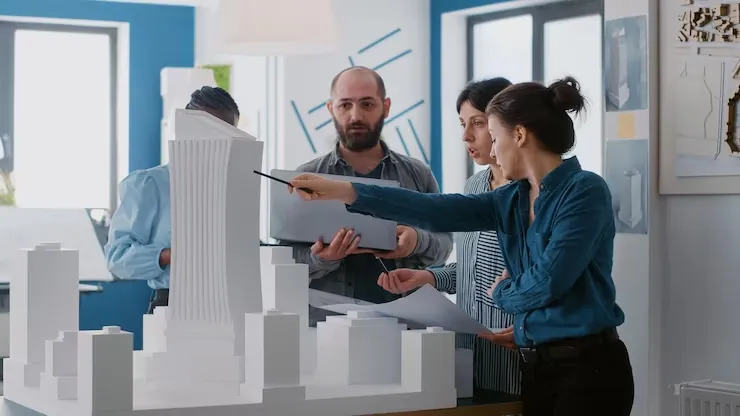Navigating the Commercial Real Estate Development Process requires a mix of vision, financial strategy, legal expertise, and construction management. Whether you’re an investor eyeing the Dubai property market, a company expanding into new locations, or a developer seeking the next big opportunity, understanding this process from start to finish is critical. With Dubai’s skyline rapidly evolving, having a solid grasp of this process ensures smarter decisions and more lucrative outcomes.
Commercial Real Estate Development Process
At its core, the Commercial Real Estate Development Process refers to the planning, financing, building, and leasing or selling of properties intended for business use, such as offices, retail centers, warehouses, and mixed-use developments. It begins with a vision and evolves through detailed planning, legal frameworks, and physical construction until it becomes a profitable asset. Each phase is interconnected, and a delay or oversight in one can derail the entire project.
In rapidly growing regions like the UAE, especially Dubai, the process is influenced by market demand, regulatory conditions, and investor appetite. Whether you’re focused on off-plan projects in the UAE or completed developments, every project follows similar foundational steps.
Site Selection and Evaluation
The first critical step in the Commercial real estate development process steps is identifying and evaluating the right piece of land. Site selection isn’t just about location; it’s about zoning regulations, access to infrastructure, market demand, and long-term value.
Developers conduct in-depth research on demographics, traffic flow, nearby amenities, and competitive properties. Evaluating the legal title, environmental conditions, and development potential of a site is key to avoiding future obstacles. For example, a location that appears ideal might have hidden limitations like height restrictions or limited road access.
In the UAE, where opportunities for real estate investment in Dubai are abundant, choosing the right site often involves consultation with a trusted real estate broker in Dubai who understands local laws and trends.
Also read: Real Estate Investment Income
Contract Negotiations and Purchase
Once a suitable site is identified, the next phase in the Commercial Real Estate Development Process involves negotiating and finalizing the purchase. This part is more than just agreeing on a price. It includes defining the terms of payment, handling contingencies, securing financing, and ensuring all due diligence is completed.
Legal teams play a central role here, drafting purchase agreements and verifying compliance with zoning and land-use regulations. Some contracts may include provisions for land banking, development timelines, or seller involvement during the planning phase.
In the context of Dubai, where both property for sale in Dubai and off-plan developments are growing, foreign investors must also navigate ownership laws, financing options, and registration requirements.
Development and Entitlement Process
With land secured, developers must seek approvals from local authorities. This is known as the entitlement phase. It includes zoning amendments, environmental reviews, planning commission approvals, and building permits.
This phase in the Commercial real estate development process steps is often the most time-consuming and can span months or even years depending on the complexity of the project. Every region, including Dubai, has its own development code and regulatory requirements.
Securing entitlements gives developers the legal right to proceed with the project. Engaging experienced architects, legal counsel, and planners ensures a smooth entitlement process and helps maintain the project timeline.
Also read: Tokenization of Real Estate in Dubai
Phases of Commercial Development and Construction
Once permits are approved, the physical development begins. Construction is typically divided into multiple phases: site preparation, foundation, structure, interior systems (like HVAC and electrical), and finishing work. Developers must coordinate with general contractors, subcontractors, engineers, and city inspectors throughout this time.
During construction, timelines and budgets must be carefully monitored. Market fluctuations, supply chain delays, or labor shortages can affect the project cost. Having a well-managed construction phase is crucial for achieving ROI and attracting tenants or buyers once the building is complete.
This is where Dubai property market insights come into play. Developers monitor current demand for office, retail, or mixed-use spaces to decide how to design and position the asset for maximum profitability.
Building a Development Process Checklist
A well-structured Commercial real estate development checklist is essential for maintaining project momentum, ensuring regulatory compliance, and avoiding costly mistakes. This checklist serves as a strategic roadmap, aligning all stakeholders and guiding every phase from concept to completion. When tailored to a Dubai-based project, it becomes a vital tool for successful execution in one of the most competitive real estate markets in the world.
1. Market Feasibility Studies
Before any investment or construction begins, it’s critical to analyze the market conditions. This involves assessing supply and demand, identifying target tenants or buyers, analyzing local competition, and estimating potential rental or sales revenue. In Dubai’s fast-paced economy, market feasibility ensures the project aligns with current trends and future growth potential.
2. Site Due Diligence
Site due diligence is the process of thoroughly investigating the selected land parcel. This includes verifying ownership titles, assessing environmental risks, identifying access to utilities and infrastructure, and ensuring the site meets physical and legal requirements. For projects in the UAE, working with a trusted real estate broker in Dubai can streamline this step significantly.
3. Zoning and Land-Use Research
Zoning and land-use research is a fundamental step in the Commercial Real Estate Development Process. Each municipality or governing body enforces specific zoning laws that dictate what types of developments, commercial, residential, industrial, or mixed-use, are permitted on a given parcel of land. For a commercial real estate project, developers must verify that the intended use aligns with existing zoning regulations. If the land is not zoned for commercial use, they may need to file a rezoning application or request a variance, which can be a time-consuming and complex process.
Understanding zoning restrictions early prevents costly delays, redesigns, or even legal disputes. In Dubai, zoning requirements are particularly critical due to strict building codes and evolving urban development plans. Researching land use also includes reviewing density limits, parking requirements, building height restrictions, and environmental overlays. Completing this step thoroughly ensures the project can legally move forward and fits seamlessly into the surrounding community.
4. Financial Modeling and Funding Sources
Accurate financial models are essential to determine project viability. This includes estimating development costs, financing needs, revenue projections, return on investment (ROI), and payback periods. Developers should also identify funding sources such as banks, equity partners, or private investors. For those pursuing real estate investment in Dubai, solid financial planning is a cornerstone of success.
Design and Engineering Plans
After feasibility and financing are confirmed, architectural and engineering plans are created. This phase covers site layout, building design, structural calculations, mechanical systems, and utility connections. Designs must comply with local building codes and reflect market expectations, especially for off-plan projects in the UAE, which rely heavily on visual appeal and investor trust.
5. Permits and Entitlements
No project can proceed without the proper permits and approvals from government authorities. This includes building permits, zoning clearance, environmental approvals, and utility permissions. In Dubai, this step requires familiarity with local regulatory frameworks and active coordination with planning departments.
Construction Scheduling and Budgeting
Once approvals are secured, the developer creates a detailed construction schedule and budget. This includes selecting contractors, ordering materials, planning inspections, and setting milestones. Tracking progress and cost variations closely is essential to prevent overruns and ensure the project stays on track.
6. Leasing or Sales Strategy
The final stage in the Commercial real estate development process steps is crafting a solid leasing or sales strategy to monetize the completed property. This phase directly impacts the project’s long-term profitability and should be planned well before construction is finished. Developers must decide whether to lease the property to tenants, sell it to investors, or pursue a hybrid model depending on market conditions and financial goals.
For leasing, it’s essential to identify target tenants, such as retailers, office users, or logistics companies, and tailor the marketing approach accordingly. This involves setting competitive rental rates, offering attractive lease terms, and showcasing the property’s value. If selling, especially in a high-demand area like Dubai, positioning the property as a prime property for sale in Dubai with strong ROI potential is key.
A successful sales or leasing strategy also includes collaboration with brokers, digital marketing, and leveraging current Dubai property market insights to attract qualified leads.
Also read: Cash Flow Real Estate Investing
What Is a CRE Developer?
A Commercial Real Estate (CRE) developer is the individual or firm responsible for overseeing the entire Commercial Real Estate Development Process. This includes identifying opportunities, arranging financing, coordinating teams, and ensuring timely completion and profitability.
CRE developers must have a solid understanding of market trends, urban planning, construction management, and legal procedures. They often work with a wide network of professionals, including architects, engineers, attorneys, contractors, marketers, and financial analysts.
In a dynamic and competitive market like Dubai, CRE developers must also stay ahead of policy changes, infrastructure developments, and economic indicators to remain profitable and relevant.
Ready to Own Your Dream Property in Dubai? Let Roofs and Roots Help You
Whether you’re looking to invest in a commercial building or exploring off-plan projects in the UAE, partnering with experienced professionals can make all the difference. At Roofs and Roots, we offer end-to-end solutions to help you find, evaluate, and acquire premium properties across Dubai.
Our team includes market analysts, legal advisors, and a trusted real estate broker in Dubai who understands every detail of the Commercial Real Estate Development Process. From identifying the perfect property for sale in Dubai to guiding you through investment paperwork, we ensure your journey is smooth, informed, and profitable.
Explore the latest opportunities and connect with us today to unlock your next commercial investment.
FAQ
What is the biggest problem in commercial real estate?
The biggest challenge in commercial real estate is managing risk, this includes financial risk, regulatory delays, environmental concerns, and market volatility. Poor site selection or misjudging demand can result in vacant properties or losses. Following a structured Commercial real estate development checklist helps mitigate many of these issues.
What is a real estate development model?
A real estate development model is a financial and operational framework that outlines the projected costs, timelines, cash flows, and return on investment for a project. It plays a central role in the Commercial Real Estate Development Process, guiding decision-making and attracting investors.
What major is best for real estate development?
The best majors for aspiring real estate developers include Urban Planning, Real Estate Finance, Civil Engineering, Architecture, and Business Administration. These fields provide the analytical, design, and financial tools required to navigate the Commercial real estate development process steps successfully.






